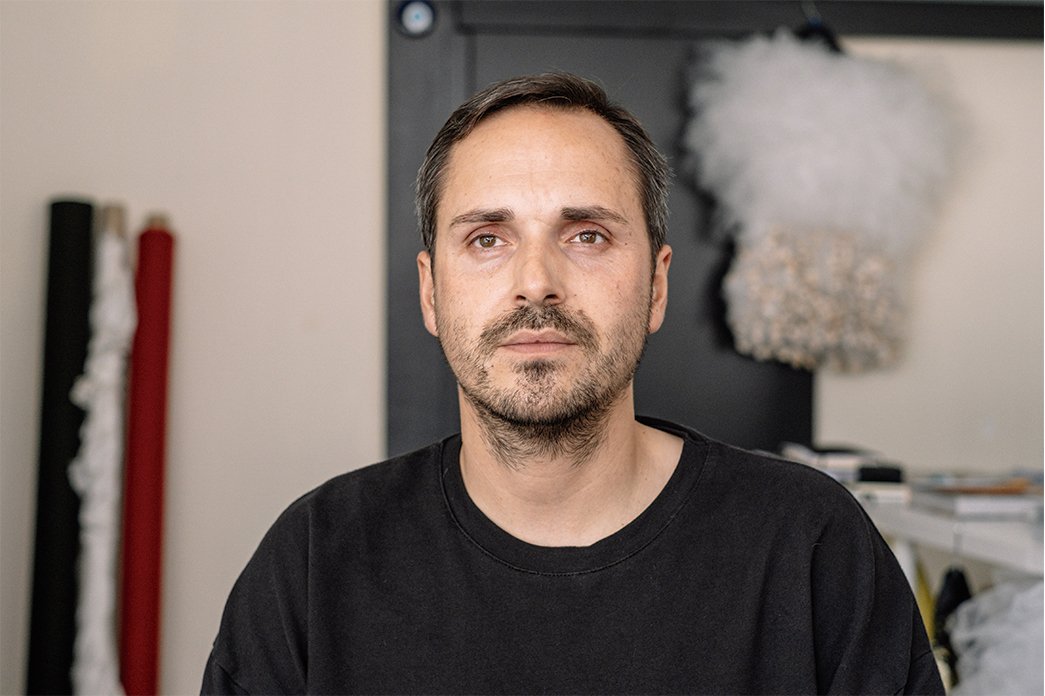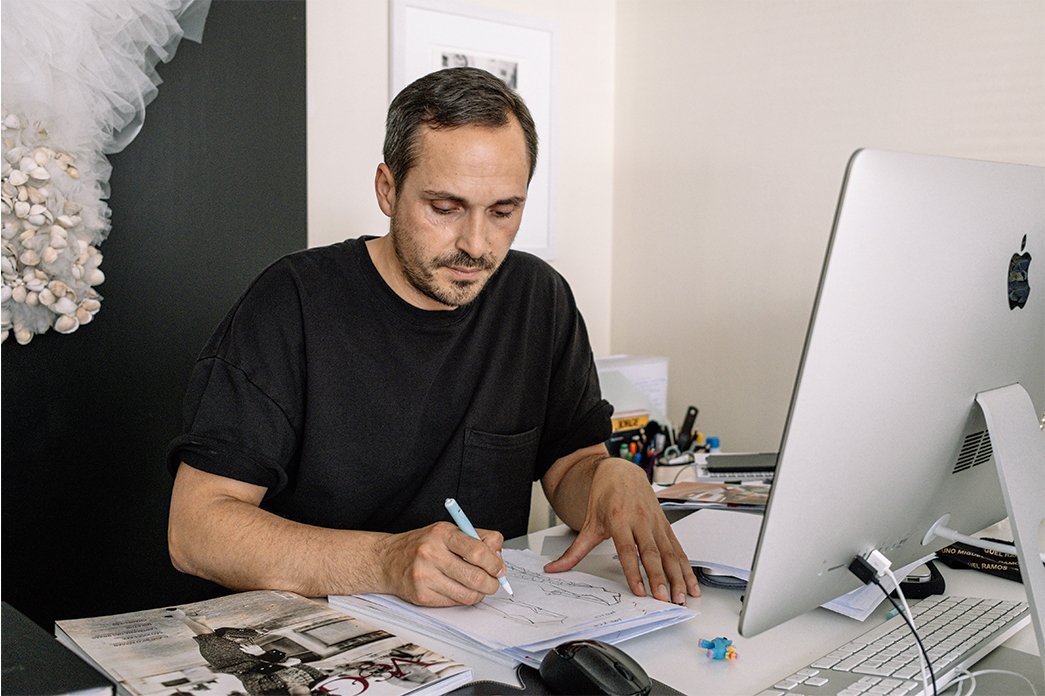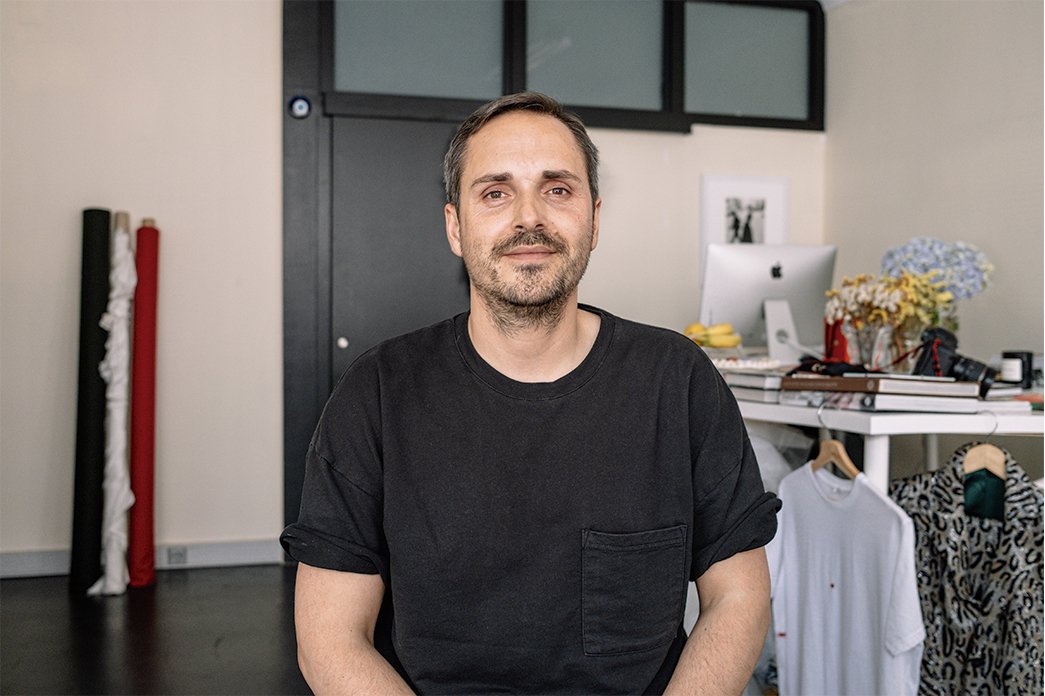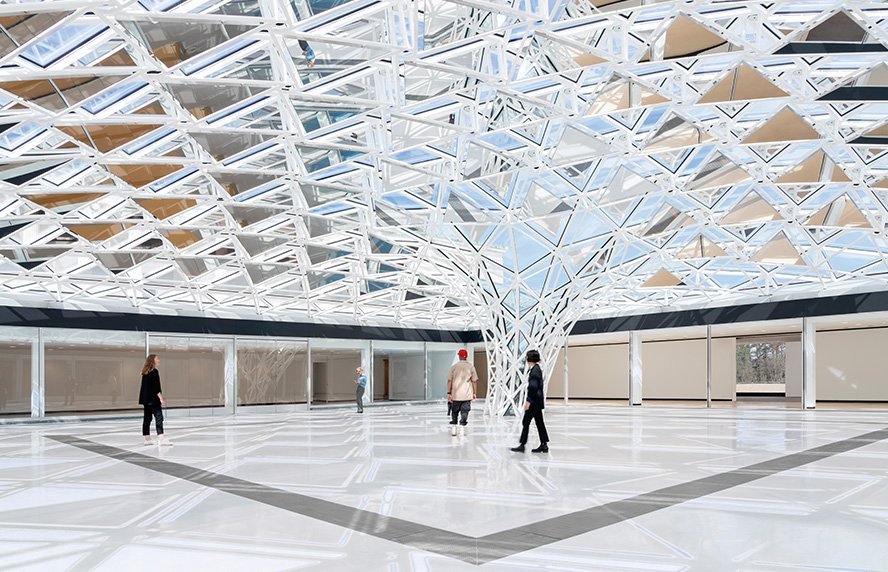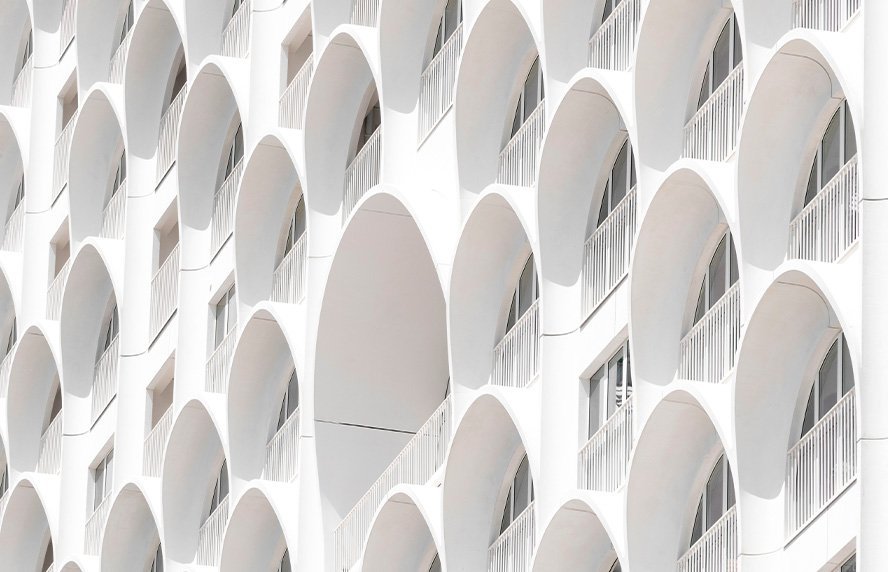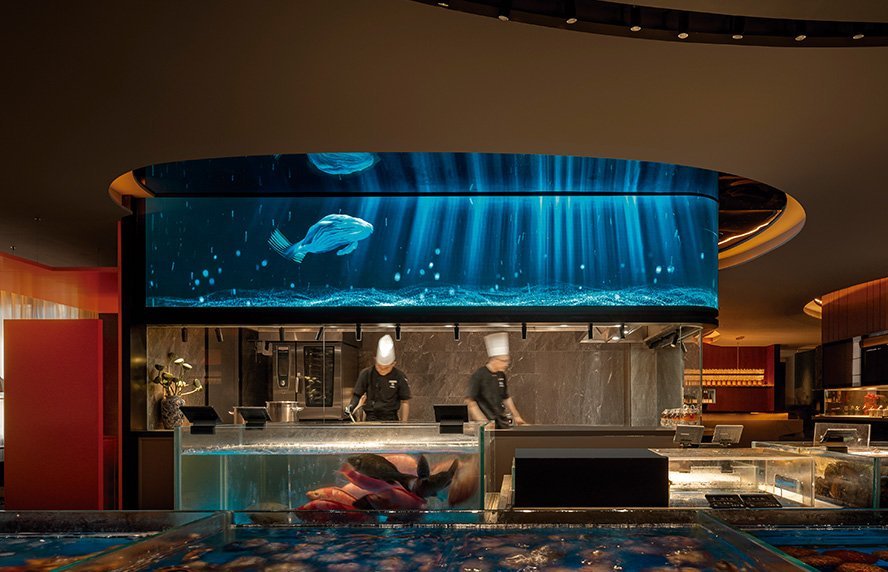How did your taste for fashion come into your life?
When I entered secondary school, I didn’t have much supervision. At the time, there was no one to guide us; there was only the psychologist. I think that if I had followed arts 20 years ago, things would have been much easier, or maybe not. I ended up going for sciences, I followed my friends. At 18 I realised this wasn’t it. Then I had the opportunity to go to Switzerland, I had my sister there. That was my ticket to freedom. That’s how I started.
I left my mother alone, which left me with a feeling of guilt, although it was good for both of us to continue growing, independent of each other. I left without knowing anything about life really, I often hit my head against a brick wall due to my stubbornness and thinking I knew a lot, when this was not the case. I had no experience, I had never travelled. I started off by helping my sister at home, then I had the opportunity to be an Au Pair, which consisted of working with a Swiss family. Due to some circumstances, I decided to terminate the contract. I went back to Portugal. A month later I got a call from my sister, she had found me a job in a restaurant. I went back. I learned how to make pizzas, I went through countless experiences and I had a person who proved fundamental in my growth, my boss at the time. I showed up in the last year of his life. He lectured me a lot because I was distracted. For many months, I cried every day. In the end I realised that this man was important in my life because he made me understand the naked and harsh reality.
After that I had many other experiences, sometimes not so good. I worked in bars, I got involved in drugs, which also ended up destroying me. There were debts, health issues, ..., problems. Perhaps without these experiences I wouldn’t know what the world is. The person who always gave me a hand was my sister. I ended up getting another job, in a pharmaceutical company. I learned German and travelled a lot to New York, Paris, ... After five years, I had a difficult relationship, which affected me a lot. My escape at the time was to start painting. I no longer had room for so many paintings at home, so I organised a gallery to exhibit my work. If I sold everything I’d get on a plane and go to New York. That’s how it was. The following week I was on my way. Once there, it was another learning experience. It was good. Without that reality I wouldn’t have entered the world of make-up. After ten months, I returned to Switzerland and started a make-up course. When I finished, I went on to work for
Mac Cosmetics, for almost a year. As I was selling well, they started to cut my creative freedom. As I wasn’t there just to sell, but to learn, I left. I started doing make-up for magazines and photo shoots. I was 28 when I looked for fashion schools. I studied for three years at one in Zurich.
Have you always felt an artist?
Always. I didn’t take the right path when I was 17, at the time when I had to choose what I wanted to do. If I had chosen Arts it would have been different. I have never been so sure in my life that I am on the right track, finally.
What captivates you in the world of fashion?
Not being restricted, it’s fundamental to do whatever I want.
At what point did you realise that fashion was where you felt fulfilled?
When I went to live in Paris. It wasn’t just a dream, but also a goal. Maybe it was the day I entered the offices of Balmain. I went in undercover, as if I was working there. I ended up talking to a person inside the premises who tried to help me.
You’ve travelled a lot. Do you use any inspiration from those travels in your creations?A bit. But my sisters were always a source of inspiration. There were always dresses, make-up, ... Once I stole a dress from my sister Sandra and it made me happy. Since then sequins have always been on my mind.
"The man I am has a lot to do with the strength of the women in my life”
